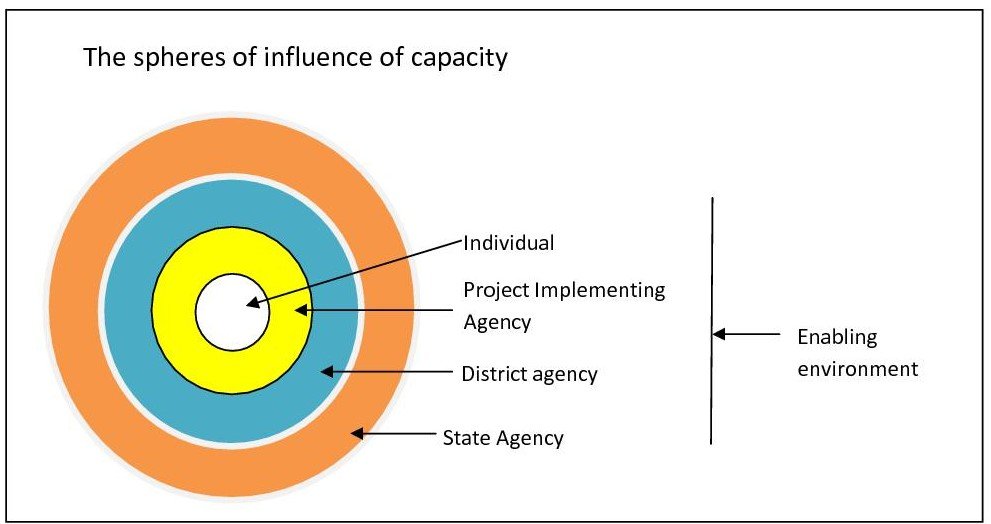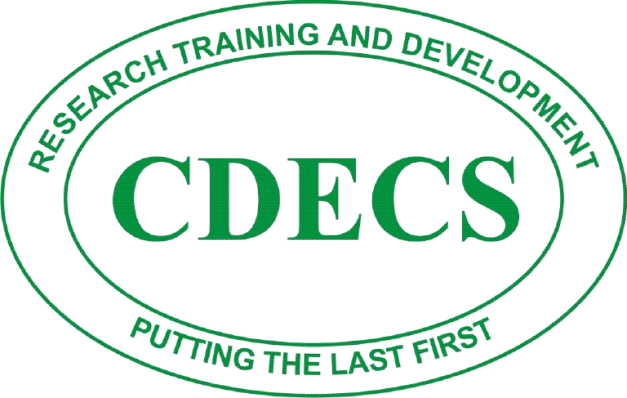Trainings & Capacity Building
I. Trainings & Capacity Building
Capacity development is the process through which individuals, organizations, and societies obtain, strengthen, and maintain the capabilities to set and achieve their own development objectives over time. It is the ‘how’ of making development work better.
Capacity development is a means to achieve the goal of a decentralized governance system that is vibrant and beneficial for the people. Besides building the capacities of individuals, it is important to strengthen the PR institutions to realize this goal. At the same time, to allow elected representatives to play their role effectively, it is important that states make systematic progress in devolving funds, functions, and functionaries to the PRIs as intended in the Constitutional Amendments.
Capacity-building programs of the states have been designed to make the elected representatives and functionaries well conversant with the powers and functions of PRIs, the processes to be followed for ensuring democratic decision-making, planning and implementation of schemes for local development, andmanaging public funds with prudence and day-to-day office management.
Capacity building at the individual level, or human resource development, is only one component of a multi-dimensional, integrated approach that comes under the rubric of capacity building. Transferring skills to an individual will only be effective when those skills can be exercised. For this to occur, there must be support from the Ministry of Panchayat Raj, GOI, state government, and stakeholder institutions & officials to practice these new skills, and they must be integrated into role profiles, operational procedures, and policies within an organization, institution, and project.
Since its inception in the year 2004, the Ministry of Panchayati Raj (MOPR) has launched various schemes from time to time for providing resource support to the states for addressing critical gaps that hinder effective functioning of PRIs. All the schemes are aimed at strengthening PRIs with a focus on capacity building so that PRIs are strengthened, capacitated, and function effectively as institutions of local self-government. The strategy for capacity building of the PRIs is an approach for enhancing the capabilities of the elected representatives and other stakeholders for participatory planning, implementation, monitoring activities, etc.
The study titled ‘Impact of Training of PRIs’ has been commissioned to the Centre for Development Communication & Studies (CDECS) by the Ministry of Panchayati Raj, Government of India, New Delhi, to provide a systematic means of analyzing and quantifying changes in capacity-building initiatives adopted by different states for the elected representatives of the PRIs and other stakeholders, which is a major challenge for people involved in capacity-building activities.
Experience in Various Trainings & Capacity Building
CDECS has experience organizing 2000+ trainings at various levels: state, district, block, gram panchayat, and village. The major focus and area of training were related to water & sanitation, census, caste census, fluoride, education, health & RCH, HIV/AIDS & nutrition.
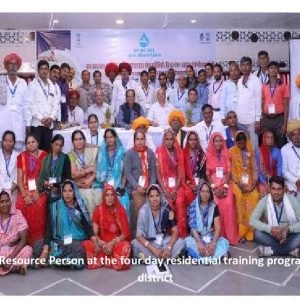
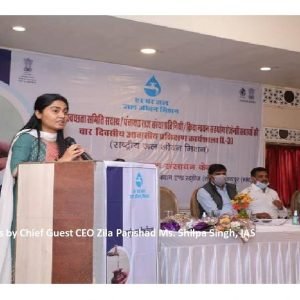
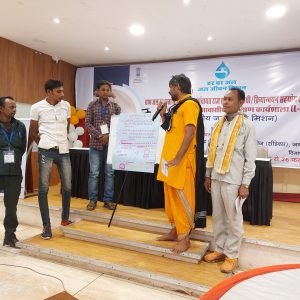
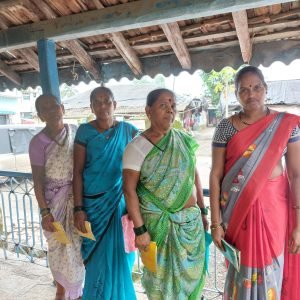
Trainings under Jal Jeevan Mission
Jal Jeevan Mission (JJM) has been launched by the Hon’ble Prime Minister of India Shri Narendra Modi on 15th August, 2019, from the ramparts of the Red Fort. The mission, under implementation, in partnership with the States, aims to enable every household in villages to have Functional Household Tap Connection (FHTC) by year 2024. It is envisaged that with FHTC, each household will have potable water supply in adequate quantity (at least 55 lpcd) of prescribed quality (as per BIS 10500:2012) on regular and long-term basis. To implement the mission, institutional arrangements at various levels have been made and State PHED Departments are to play a critical role. They have to help Gram Panchayat (GP) and/ or its sub-committee to plan, implement, manage, operate and maintain its in-village water supply systems. A sense of ownership has to be instilled in the village community as they are at the centre of this mission. This will require the current programme implementation structure to transform from infrastructure development to ‘utility-based’ approach, with strategic shift in focus from water supply ‘infrastructure creation’ to ‘service delivery’.
To achieve the vision of JJM, it is required to re-orient both Public Health Engineering and other non-engineering stakeholders. The people managing the water supply services at all levels, i.e., village, GP, district and State, need to be provided with training and leadership programmes so as to enable them to discharge their role in managing the public utilities for assured quality services. The training programme for Level -3 has been customized to suit different levels covering various technical, managerial and leadership aspects. Through this capacity building training, effort has been made to offers a platform and huge potential to generate the future leadership in water sector through such capacity building and change management programmes.
The Level -3 training is planned and organized based on broad framework given in L3 training manual. The core focus is on creating a favorable, comfortable and friendly learning environment, conducive for self-reflection, realization and pro-active behaviour change for nurturing responsible and responsive governance amongst various stakeholders associated with provisioning water supply in villages of the district. The thematic areas covered include perception, knowledge and skill, community participation, women empowerment, leadership building among Panchayat representatives, planning, implementation and operation and maintenance of the water supply infrastructure in the village. The training programme broadly covered the ethos of Jal Jeevan Mission for good water governance which shall meet the demand for adequate quantity of drinking with required quality and also will lead to long-term sustainability of created system, processes and drinking water sources.
In the above background, National Jal Jeevan Mission, Ministry of Jal Shakti, Government of India has empanelled Center for Development Communication & Studies Jaipur as Key Resource Center for capacity development of community level stakeholders Level – 3 by NJJM (GoI) vide their letter No.W-11012/18/2020-JJM-III-DDWS dated 09 April, 2021 and allotted six States & UTs namely Rajasthan, Madhya Pradesh, Jharkhand, Maharashtra, Goa and Daman, Diu, Dadara & Nagar Haveli vide letter No. W-11011/34/2021-JJM-V-DDWS – Part (1) dated 17 August, 2021 and email dated 19 August, 2021. In compliance with above letter CDECS has been assigned responsibility of different states. In together we have completed more than 156 trainings in 2023-24.
Key Strengths on Training & Capacity Building
- Diverse team of Trainers/MTs/KRPs for contextual training programmes in place
- Ensure Quality trainings materials based on experiences and requirements
- Develop team of community level functionaries with required commitment and dedication for JJM
- Blend the local problems resources and practices with trainings
- Ensure strong community and strong level structures for JJM
- The trainees will be future trainers – rippling /chain effect
- Timely completion of trainings with strong support from local administration and PRIs
- Constant review and support the trainings – redesign and engineering
- Resource centre for Grassroots functionaries/Community/Local PRIs –online consultation/support at GP meetings –Post training facilities‘
- Convergence, Coordination & Governance –systemic impact
